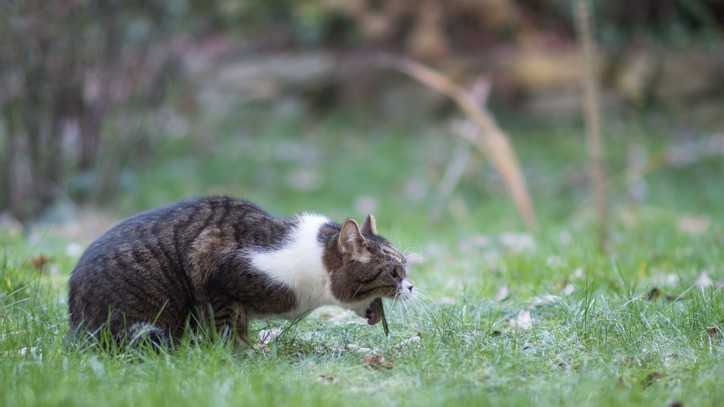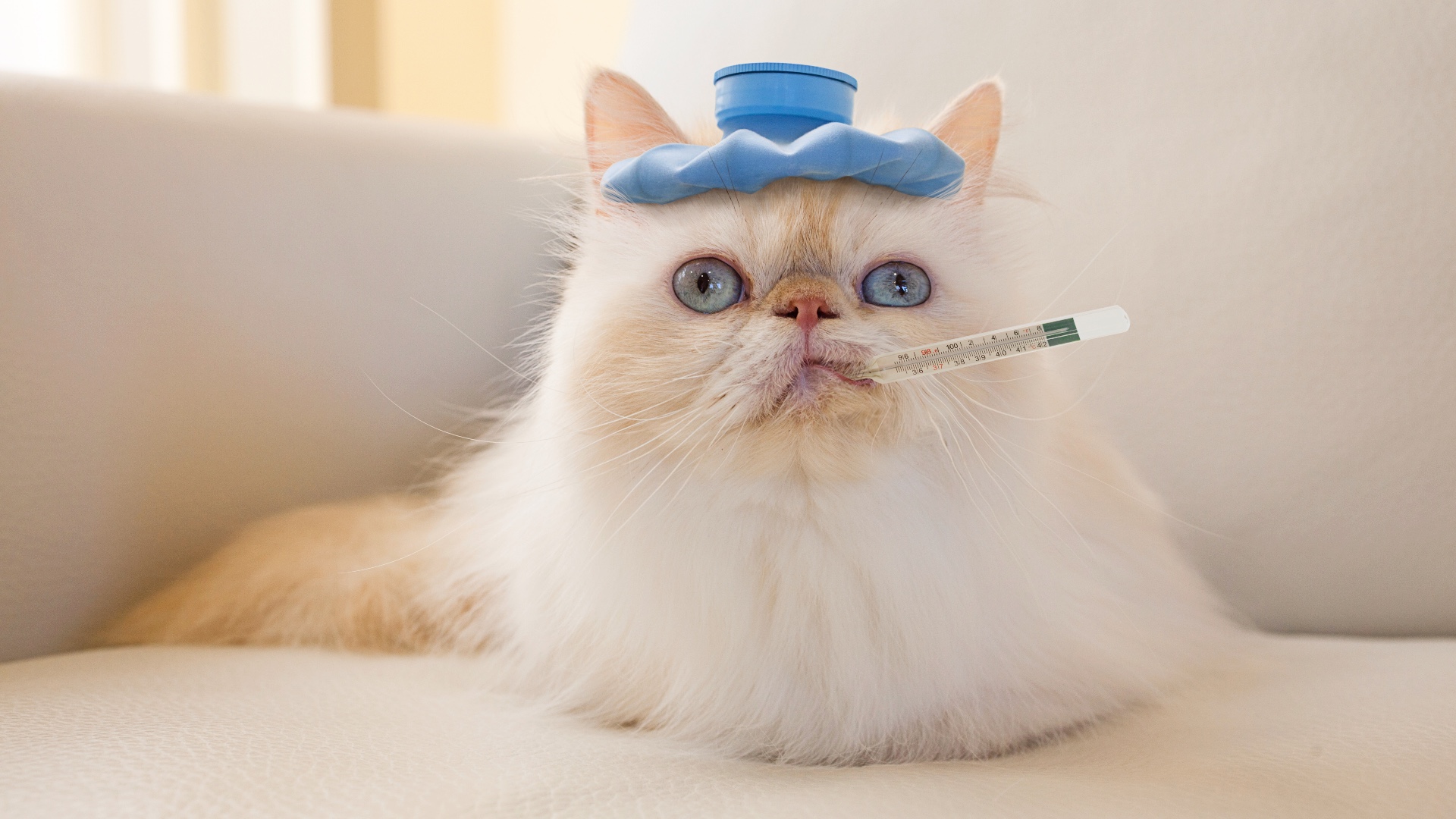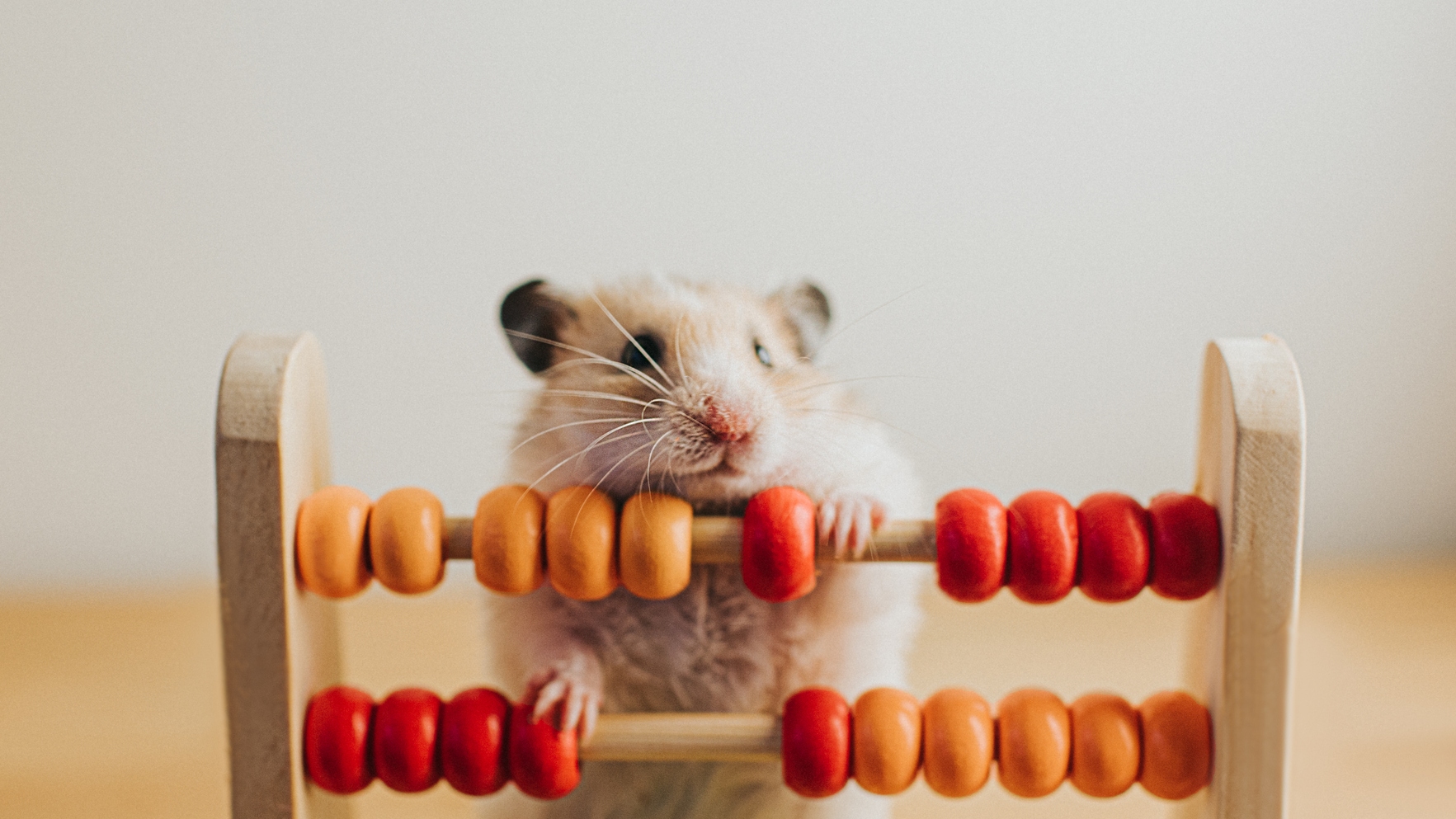What to do if your cat is throwing up
Wondering why your cat is throwing up? We explore common reasons and what you can do to help!

It can be a worrying time if your cat is throwing up. They can’t tell us what’s wrong or how they are feeling, so sometimes it’s hard to know what to do for the best. Vomiting is not a very specific symptom and could be due to an array of different health conditions.
In this article, we will look at some of the more common causes of vomiting that vets diagnose in cats, the warning signs you should look out for, and what you can do to help your pet get better.
Causes of vomiting in cats
There are many different reasons why your cat is throwing up. Many cats will be sick from time to time with hairballs, eating grass or travel sickness. Or the cat is eating too fast. But more frequent vomiting could be a sign of an underlying condition. Let’s look at some of the most common causes of why your cat might be vomiting.
Parasites
A high number of worms could cause vomiting in cats, as well as diarrhoea. Routine parasite treatment should prevent this from occurring.
Food intolerance
Some cats can have food intolerances or allergies to certain ingredients, causing upset stomachs. Inflammatory bowel disease can be seen too.
Pancreatitis
Pancreatitis is a condition whereby the pancreas (a small organ that helps with the digestion of fats), becomes inflamed. This causes abdominal pain, vomiting, diarrhoea, lethargy and lack of appetite. Pancreatitis can vary in severity but is usually treated with a combination of pain killers and intravenous fluids.
Kidney disease
Cats can either suffer from acute or chronic kidney failure, both of which could cause vomiting. Acute kidney failure usually occurs due to sudden damage to the kidneys, from toxins or injury. Chronic kidney failure is commonly seen in elderly cats, where the kidneys become shrunken and scarred through ageing.
Get the best advice, tips and top tech for your beloved Pets
Foreign body
If your cat eats something undigestible this could cause a blockage in its digestive tract. Cats may play with and accidentally ingest small toys, hair bands, tinsel and elastic bands by causing serious problems. Surgery may be required to extract these items.
Toxicity
If your cat eats something poisonous it could cause vomiting. Things that could cause vomiting in cats include lilies, antifreeze and chocolate.
Hyperthyroidism
A benign overgrowth of the thyroid gland can cause an increase in metabolism, leading to weight loss despite an increased appetite. These cats may also have digestive upset such as vomiting or diarrhoea. Diagnosis is made by blood tests, with a variety of treatment options available.
Medication side-effects
Some medications could cause upset tummies as a negative side-effect. Check with your veterinarian if your cat is vomiting whilst taking prescribed drugs.
Cancer
Certain cancers or tumours, such as lymphoma, could cause your cat to vomit. You may see other symptoms too like weight loss and diarrhoea.
What my cat’s vomit color means

What cats bring up when they vomit can give us a clue as to what is going wrong. It can be a good idea to take a photo of your cat’s vomit to show the vet, especially if it’s a strange color. Here are some common cat vomit colors that you might spot, and what they mean:
Cat throwing up yellow liquid

There’s no NHS for pets. Veterinary care can be eye-wateringly expensive and most pets will need treatment for an illness or injury at some point in their life. It’s difficult to think about your animals being hurt or unwell, but you need to ask yourself: what would you do if you were faced with a vet bill for hundreds or thousands of pounds?
If your cat’s vomit is yellow, it’s likely they’re throwing up bile. Bile is a normal fluid produced by the intestines to help with digestion, but it should usually flow down through the guts rather than back into the stomach. If your cat is vomiting yellow bile, this is usually an indication that the stomach is empty. Sometimes this could be because they’ve been vomiting a lot, or it could be because they are being fed too infrequently or they skipped some meals because they were out. Yellow vomit in cats can be a one-off, but if it happens frequently it should be investigated as it may be a sign that the guts aren’t working as they should.
Cat throwing up white foam
Like yellow bile vomit, white foam vomit in cats is usually an indication that the stomach is empty. The foam happens because bile mixes with the mucus that lines the stomach, and this viscous fluid can trap air bubbles as it’s vomited. Foamy vomit in cats isn’t something to worry about on it’s own, but if the vomiting doesn’t stop or happens frequently – even if your cat is fine in between episodes – it’s time to head to the vet.
Cat vomit with blood
Streaks of blood in cat vomit aren’t necessarily an emergency, but they are an indication you should head to the vet. Cats may have blood in their vomit due to a foreign body irritating the stomach, or because something is causing bleeding in the stomach. They may also vomit streaks of blood because they’ve been vomiting so much they’ve got an irritated oesophagus and stomach. Either way, blood in the vomit should prompt you to call a veterinarian for an appointment.
Cat throwing up brown liquid
Cats vomiting brown liquid can be a cause for concern. Sometimes, cats will throw up brown liquid because they’ve eaten something that was brown – like many kitty foods. In this case, the vomit is likely to be thicker and lumpy and look a lot like the food that went in. But vomiting brown liquid can be more concerning. While fresh red blood in the vomit suggests a recent bleed, brown blood suggests bleeding that’s been going on for some time, as the brown color comes from the fact it’s been partially digested. If the vomit is brown, any bleeding is less likely to be the result of irritation from vomiting and is more likely to signify a severe problem. You should definitely be visiting a vet if your cat is vomiting brown liquid.
When should I take my cat to the vet?
Most of the time cats are sick because of a simple case of gastritis (mild tummy upset). However, you should take your cat to the vet if you notice any of the following more serious signs:
- Vomiting several times
- Vomit with blood in it
- Being off their food
- Pale gums
- Changes in thirst and urination
- If they are lethargic or depressed
- Other symptoms such as breathing difficulties, wobbliness or seizures
If you have any doubts, it is far better to take your cat to the vet sooner rather than later.
What will help my cat feel better?
If your cat has just been sick once or twice and is otherwise bright with no other symptoms, you may choose to monitor them at home. Make sure they have access to plenty of fresh water and consider feeding them bland, easy to digest food for a few days. Lean cooked chicken (no fatty skin), white fish, and boiled rice are all good choices, but a commercial sensitivity diet is best as it contains all the nutrients they need.
If your cat is unwell and they require veterinary attention, then treatment will depend on the underlying cause of their illness. They may receive an injection to help stop nausea and vomiting, which can help make them feel brighter. Intravenous fluids may be required if your cat has become dehydrated, and they may also need painkillers if they have abdominal discomfort.
Your vet will be able to advise you on the tests available to help diagnose your cat's condition, but usually, bloodwork and diagnostic imaging (such as x-rays and ultrasound scans) are a good way of screening for conditions like pancreatitis, kidney disease and foreign bodies.
Conclusion
There are many possible reasons why your cat is throwing up. It is best to get them checked out by a vet, particularly if they have eaten something toxic or if they are showing other symptoms of being unwell. Unless the vomiting resolves immediately, it is usually best to get your cat seen sooner rather than later!
Rebecca is a veterinary surgeon who graduated from the Royal Veterinary College in London in 2009. She enjoys medicine in particular and she is proud to have achieved a BSAVA postgraduate certificate in small animal medicine (with commendation) from Nottingham Trent University in 2021.
She has a wealth of experience in first opinion small animal practice, having done a mixture of day-to-day routine work, on-call emergency duties and managerial roles since 2009.
She writes on various feline and canine topics for the Veterinary Content Company and a freelance basis, including behavior, nutrition, and health. Outside of work and writing she enjoys walking her own dog, spending time with her young family and baking!

